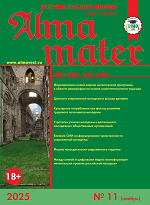Berlin lessons. The third world festival of youth and students in Berlin (August 5-19, 1951)
UDC 327.7:93/94
https://doi.org/10.20339/AM.10-19.090
M.V. Datsyshina is Cand.Sci. (History), head specialist at Russian State Archive of Social Political History (RGASPI) e-mail: ditrich@list.ru
Discussed are technology of organizing the Third World Festival of Youth and Students in Berlin (5–19 August 1951): principles of selection of national delegations, medical care, ensuring effective communication (translators). Speaking about the program of the festival, the author shows new expectations of young people, who were not taken into account by festival organizers. Particular attention is paid to budget of the festival, incl. the Solidarity Fund, highlighted is the role and participation in the fund of individual countries and the key role of the USSR, shown are disagreements within countries of the socialist camp, that appeared long before events in Hungary (1956) and Czechoslovakia (1968). Noted is, that use of new propaganda technologies by supporters of the festival and counter-propaganda of it’s opponents turned the Third World Festival into unique project to organize international youth forum in the face of tough international political confrontation. The basis for the article is archival documents from the RGASPH funds, first introducing into scientific circulation.
Key words: Third World Festival of youth and students, cold war, the 1950s, technologies of mobilization of the Youth Solidarity Fund of the festival, division of Germany, foreign policy propaganda of the USSR after the Second World War, Soviet propaganda in Latin America countries, Russian as language of international communication, language policy, Vittorio De Sica, Pablo Picasso.











.png)






